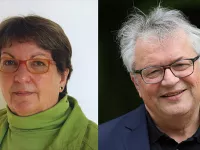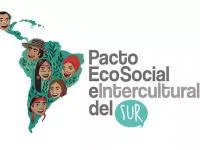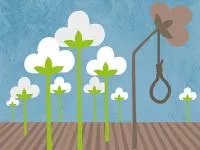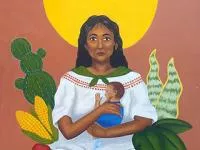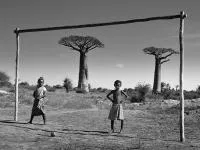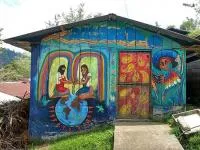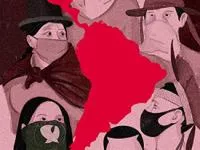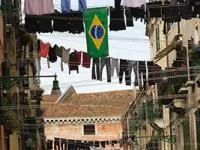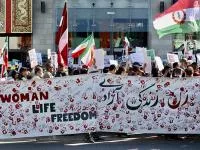GD 13.1 - April 2023
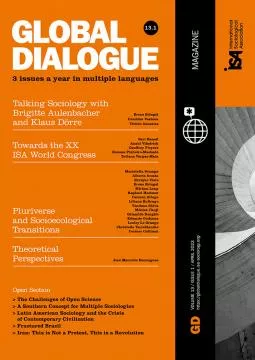
Global Dialogue is available in multiple languages!
Select the language to download the issue.
Editors:
Breno Bringel.
Assistant Editors:
Vitória Gonzalez, Carolina Vestena.
Associate Editor:
Christopher Evans.
Managing Editors:
Lola Busuttil, August Bagà.
Consultants:
Michael Burawoy, Brigitte Aulenbacher, Klaus Dörre.
Media Consultant:
Juan Lejárraga.
Consulting Editors:
Sari Hanafi, Geoffrey Pleyers, Filomin Gutierrez, Eloísa Martín, Sawako Shirahase, Izabela Barlinska, Tova Benski, Chih-Jou Jay Chen, Jan Fritz, Koichi Hasegawa, Hiroshi Ishida, Grace Khunou, Allison Loconto, Susan McDaniel, Elina Oinas, Laura Oso Casas, Bandana Purkayastha, Rhoda Reddock, Mounir Saidani, Ayse Saktanber, Celi Scalon, Nazanin Shahrokni.
REGIONAL EDITORS
Arab World: (Tunisia) Mounir Saidani, Fatima Radhouani, (Lebanon) Sari Hanafi.
Argentina: Magdalena Lemus, Juan Parcio, Dante Marchissio.
Bangladesh: Habibul Khondker, Khairul Chowdhury, Bijoy Krishna Banik, Abdur Rashid, Sarker Sohel Rana, Md. Shahidul Islam, Helal Uddin, Masudur Rahman, Yasmin Sultana, Ruma Parvin, Sharmin Akter Shapla, Saleh Al Mamun, Ekramul Kabir Rana, Farheen Akter Bhuian, Khadiza Khatun, Aysha Siddique Humaira, Arifur Rahaman, Istiaq Nur Muhit, Md. Shahin Aktar.
Brazil: Fabrício Maciel, Andreza Galli, Ricardo Visser, José Guirado Neto, Jéssica Mazzini Mendes.
France/Spain: Lola Busuttil.
India: Rashmi Jain, Rakesh Rana, Manish Yadav, Pragya Sharma.
Iran: Reyhaneh Javadi, Niayesh Dolati, Sayyed Muhamad Mutallebi, Elham Shushtarizade.
Kazakhstan: Aigul Zabirova, Bayan Smagambet, Adil Rodionov, Almash Tlespayeva, Kuanysh Tel, Almagul Mussina, Aknur Imankul, Madiyar Aldiyarov.
Poland: Aleksandra Biernacka, Joanna Bednarek, Anna Turner, Marta Blaszczynska, Urszula Jarecka.
Romania: Raluca Popescu, Raisa-Gabriela Zamfirescu, Bianca Mihăilă, Diana Moga, Luiza Nistor, Ruxandra Păduraru, Maria Vlăsceanu.
Russia: Elena Zdravomyslova, Daria Kholodova.
Taiwan: Wan-Ju Lee, Tao-Yung Lu, Yu-Wen Liao, Po-Shung Hong, Yi-Shuo Huang, Chien-Ying Chien, Zhi Hao Kerk, Mark Yi-wei Lai, Yun-Jou Lin, Yun-Hsuan Chou.
Turkey: Gül Çorbacıoğlu, Irmak Evren.
GD 13.1 - April 2023
Editorial
It is my great pleasure to welcome you all to this first issue of 2023, the first of our new editorial team at Global Dialogue. At the end of 2022, I was thrilled to hear from Eloísa Martín, ISA Vice-President for Publications, about my appointment as the new editor. The previous editorial team, led by Brigitte Aulenbacher and Klaus Dörre, ensured a smooth transition. I wish to thank them and their assistant editors Raphael Deindl, Johanna Grubner, Walid Ibrahim and Christine Schickert for their support and fantastic work over the past years. Professors Aulenbacher and Dörre will remain involved, along with founding editor Michael Burawoy, as consulting editors. No doubt this will be crucial in matching the project’s ongoing history with the changes required.
Our managing editor Lola Busuttil, who has been working with Global Dialogue from its beginnings, has been the best guarantee for a safe transition. Her support is fundamental alongside that of August Bagà, Toffa Evans, and the large and dedicated team of regional editors.
Global Dialogue has been growing impressively since its launch in 2010. It started as a newsletter with an artisanal format and a relatively limited scope. In just over ten years, it became a magazine published in over a dozen languages, with an impressive number of contributors worldwide, making it possible for sociologists from all regions of the world to learn more about other realities, research results and concerns about the contemporary world.
This significant work needs to be consolidated and expanded. We have identified three main challenges for further developing Global Dialogue in the coming years: building public and global sociology from the ISA but also beyond the ISA, reorganising and providing stability to the editorial sections of Global Dialogue, and redefining the communication and dissemination strategies.
I have many ideas for each of these challenges, but before implementing them, I want to hear from you. To this end, between now and the XX ISA World Congress of Sociology in Melbourne next June, I will open a broad dialogue within the ISA community, with the help of my assistant editors Carolina Vestena and Vitória Gonzalez. Both are brilliant young global social scientists with editorial experience and a broad commitment to public sociology. Carolina is based in Kassel, Germany, and Vitória in Rio de Janeiro, Brazil.
This issue opens with an interview with former editors Brigitte Aulenbacher and Klaus Dörre, in which they explain how they translate public sociology into their research agendas, talk about their challenges as editors of Global Dialogue and their perspectives for moving forward a global sociology.
A first symposium brings together different texts with an eye to the next ISA Congress in Australia. Sari Hanafi presents some of its central topics and Anahí Viladrich reflects on the current moment of transition between online and face-to-face formats. Geoffrey Pleyers, in turn, discusses some of the main challenges facing global sociology today and the role of the ISA in addressing them. Rosana Pinheiro-Machado and Tatiana Vargas-Maia take up one of the central themes of the Congress, contemporary authoritarianism, exploring why we need a new framework to study the contemporary extreme right.
The second symposium seeks to give visibility to a collective global effort initially organised by Ashish Kothari, Ariel Salleh, Arturo Escobar, Federico Demaria and Alberto Acosta: the post-development dictionary Pluriverse. Among the exciting collection of pieces, we decided to publish short texts by prominent activists and intellectuals reflecting the potential for a global dialogue on topics such as alternatives to development (Vandana Shiva), living well (Mónica Chuji, Grimaldo Rengifo and Eduardo Gudynas), Ubuntu (Lesley Le Grange), ecofeminism (Christelle Terreblanche), and the rights of nature (Cormac Cullinan). In addition, members of the Ecosocial and Intercultural Pact of the South (Maristella Svampa, Alberto Acosta, Enrique Viale, Miriam Lang, Raphael Hoetmer, Carmen Aliaga, Liliana Buitrago, and myself) sign a text on the geopolitics of eco-social transitions, questioning how the hegemonic ecological transitions of dominant actors in the North may be shaping a new type of green extractivism, which aggravates ecological debt, potentiates green colonialism and expands zones of sacrifice in the Global South. Alternatives to this scenario are also a central focus of this piece and the symposium.
In the theoretical section, José Maurício Domingues asks whether the post-pandemic world has led to the emergence of a new phase of modernity. His historical and sociological analysis of some trends in the development of the state, the economy and social policies helps us go beyond the hasty interpretations stemming from the pandemic.
Finally, the Open Section brings together three articles introducing different challenges for contemporary sociology. Fernanda Beigel discusses how the social sciences face up to the imperatives of open science to open the results and process of scientific research. Mahmoud Dhaouadi claims a Southern concept for multiple sociologies. And the members of the Latin American Sociological Association (ALAS) draw a diagnosis of the contemporary civilisational crisis and the role of sociology in this region. Two more texts specifically address the Brazilian and Iranian realities. In the first one, Elísio Estanque and Agnaldo de Sousa Barbosa argue that an interpretation beyond the short term is needed to understand Brazil’s current polarisation. The second text, published under a pseudonym to protect the life of its author, offers an analysis of the recent mobilisations in Iran. We cannot normalise these situations neither can we remain silent in the face of rampant authoritarianism. Global Dialogue will continue to be committed to rigorous sociological analysis while taking a stand against global injustices! We stand for renewed internationalism!
Breno Bringel, Editor of Global Dialogue
Global Dialogue can be found in multiple languages.
Submissions should be sent to globaldialogue@isa-sociology.org.

